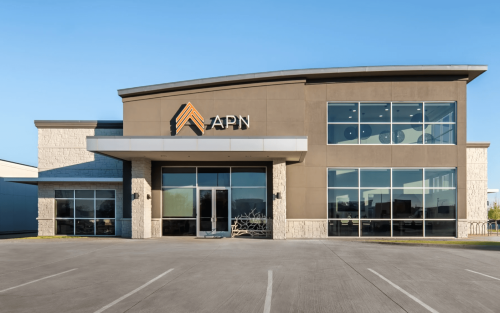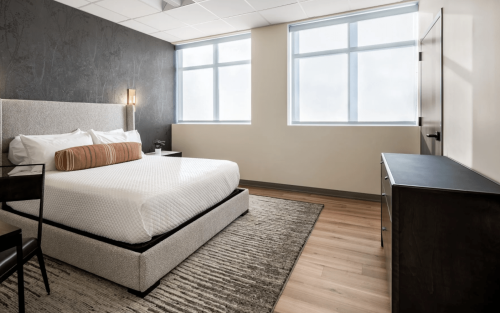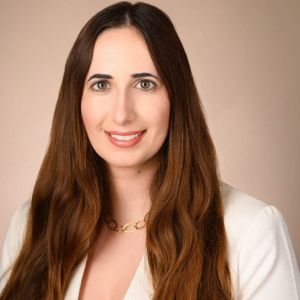






APN DFW Detox & Treatment Center
Verified Center
This provider's information has been quality-checked by Recovery.com's Research Team for accuracy and completeness, including center verification through appropriate third-party organizations.
Treatment Focus
This center primarily treats substance use disorders, helping you stabilize, create relapse-prevention plans, and connect to compassionate support.
Primary Level of Care
Offering intensive care with 24/7 monitoring, residential treatment is typically 30 days and can cover multiple levels of care. Length can range from 14 to 90 days typically.
Treatment Focus
This center primarily treats substance use disorders, helping you stabilize, create relapse-prevention plans, and connect to compassionate support.
Primary Level of Care
Offering intensive care with 24/7 monitoring, residential treatment is typically 30 days and can cover multiple levels of care. Length can range from 14 to 90 days typically.
Provider's Policy
All Points North works with most insurance plans with “Out of Network” benefits. APN DFW Detox & Treatment Center is able to take in-network benefits for First Health insurance. Our process includes free and confidential insurance verification to determine if there are benefits which can be applied towards your care.
APN DFW Detox & Treatment Center
APN DFW Detox & Treatment Center
About APN DFW Detox & Treatment Center
APN DFW Detox and Treatment Center extends its services beyond 24-hour medical detox and, in addition, offers residential treatment, day treatment (PHP), and intensive outpatient programs (IOP) to guide clients through every step of their recovery journey. As the first touchpoint for those seeking recovery, the center combines cutting-edge medication-assisted detox with evidence-based protocols, ensuring safe and comfortable withdrawal management. Beyond their standard programming, APN's expert team conducts thorough assessments and evaluations for mental health and substance use disorders, crafting treatment plans to address each individual’s unique needs.
Comprehensive Approach to Recovery
At All Points North (APN) in Dallas-Fort Worth, recovery is a transformative journey, blending holistic care with cutting-edge therapies to help individuals reclaim their lives. They offer a full spectrum of treatment options, including detox, residential care, partial hospitalization (PHP), and intensive outpatient programs (IOP). Clients can target their concerns with advanced therapies like deep transcranial magnetic stimulation (dTMS) and ketamine-assisted treatment, while also settling into relaxation through acupuncture and mindfulness. With a team of expert clinicians providing personalized care, APN creates an environment of warmth and luxury, empowering clients to heal and build a brighter future through sustainable, lasting recovery.
Convenient Dallas Location
Located near Dallas and Fort Worth, APN DFW Detox & Treatment Center is a safe and convenient spot to receive quality medical and psychological care. Clients seeking treatment receive multidisciplinary care from experienced professionals, a product of decades of experience, genuine compassion, and a true desire for clients’ lasting success. Throughout their recovery experience, clients will enjoy comfortable beds, chef-prepared meals, cozy lounge areas, and luxurious bathrooms.
Holistic Wellness
At APN Dallas-Fort Worth, recovery happens in a warm, welcoming environment that’s designed to care for both body and mind. The facility offers a range of wellness options, including access to an open gym, an invigorating cold plunge, a rejuvenating sauna, and a soothing steam room. Clients can also take part in group fitness classes led by experts, work with personal trainers, and receive customized nutritional guidance. By blending advanced therapies with these wellness amenities, APN creates a truly unique healing experience where clients can tap into a new sense of vitality and well-being.
Highlights from the Center
Highlights
These highlights are provided by and paid for by the center.
Insurance Accepted
Certified Professionals
Private Rooms Available
All Services On-Site
Center Overview
Treatment Focus
This center primarily treats substance use disorders, helping you stabilize, create relapse-prevention plans, and connect to compassionate support.
Joint Commission Accredited
The Joint Commission accreditation is a voluntary, objective process that evaluates and accredits healthcare organizations (like treatment centers) based on performance standards designed to improve quality and safety for patients. To be accredited means the treatment center has been found to meet the Commission's standards for quality and safety in patient care.

Insurance Accepted
Cash Pay Rates
Estimated Cash Pay Rate
Center pricing can vary based on program and length of stay. Contact the center for more information. Recovery.com strives for price transparency so you can make an informed decision.
Meet Your Care Team

Dr. Omar Elhaj
Chief Medical Officer
MD, FAPA

Dr. Philip Hemphill
Chief Clinical Officer
PhD

Dr. Amy Robertson
Professionals Program Director
PsyD

Dr. Jes Montgomery
Medical Director
MD, FASAM, DABPN, DABAM

Alexandra Frascino
Clinical Director
MS, LMFT




Levels of Care







Your Care Options
Specializations
Alcohol
Using alcohol as a coping mechanism, or drinking excessively throughout the week, signals an alcohol use disorder.
Detox
Detox fully and safely removes toxic substances from the body, allowing the next steps in treatment to begin with a clean slate.
Benzodiazepines
Benzodiazepines are prescribed to treat anxiety and sleep issues. They are highly habit forming, and their abuse can cause mood changes and poor judgement.
Heroin
Heroin is a highly addictive and illegal opioid. It can cause insomnia, collapsed veins, heart issues, and additional mental health issues.
Individual Treatment
Individual care meets the needs of each patient, using personalized treatment to provide them the most relevant care and greatest chance of success.
Opioids
Opioids produce pain-relief and euphoria, which can lead to addiction. This class of drugs includes prescribed medication and the illegal drug heroin.
Prescription Drugs
It's possible to abuse any drug, even prescribed ones. If you crave a medication, or regularly take it more than directed, you may have an addiction.
Who We Treat
Young Adults
Emerging adults ages 18-25 receive treatment catered to the unique challenges of early adulthood, like college, risky behaviors, and vocational struggles.
Men and Women
Men and women attend treatment for addiction in a co-ed setting, going to therapy groups together to share experiences, struggles, and successes.
Midlife Adults
For adults ages 40+, treatment shifts to focus on the unique challenges, blocks, and risk factors of their age group, and unites peers in a similar community.
Approaches
Evidence-Based
A combination of scientifically rooted therapies and treatments make up evidence-based care, defined by their measured and proven results.
Holistic
A non-medicinal, wellness-focused approach that aims to align the mind, body, and spirit for deep and lasting healing.
Individual Treatment
Individual care meets the needs of each patient, using personalized treatment to provide them the most relevant care and greatest chance of success.
Therapeutic Community
Therapeutic communities allow patients to contribute to the success and progress of their community, through healthy behaviors or even basic chores.
Therapies
1-on-1 Counseling
Patient and therapist meet 1-on-1 to work through difficult emotions and behavioral challenges in a personal, private setting.
Transcranial Magnetic Stimulation
Localized magnetic pulses stimulate areas of the brain to increase brain activity and reduce abnormal functions.
Medication-Assisted Treatment
Combined with behavioral therapy, prescribed medications can enhance treatment by relieving withdrawal symptoms and focus patients on their recovery.
Ketamine Therapy
Ketamine therapy uses ketamine, a dissociative anesthetic, to provide rapid relief for severe depression, trauma symptoms, and other mental health conditions.
Substances We Treat
Alcohol
Using alcohol as a coping mechanism, or drinking excessively throughout the week, signals an alcohol use disorder.
Benzodiazepines
Benzodiazepines are prescribed to treat anxiety and sleep issues. They are highly habit forming, and their abuse can cause mood changes and poor judgement.
Cocaine
Cocaine is a stimulant with euphoric effects. Agitation, muscle ticks, psychosis, and heart issues are common symptoms of cocaine abuse.
Drug Addiction
Drug addiction is the excessive and repetitive use of substances, despite harmful consequences to a person's life, health, and relationships.
Heroin
Heroin is a highly addictive and illegal opioid. It can cause insomnia, collapsed veins, heart issues, and additional mental health issues.
Methamphetamine
Methamphetamine, or meth, increases energy, agitation, and paranoia. Long-term use can result in severe physical and mental health issues.
Opioids
Opioids produce pain-relief and euphoria, which can lead to addiction. This class of drugs includes prescribed medication and the illegal drug heroin.
Prescription Drugs
It's possible to abuse any drug, even prescribed ones. If you crave a medication, or regularly take it more than directed, you may have an addiction.
Languages
Care Designed for Your Needs
Personal Amenities
Special Considerations
Flexible technology policies
Centers with flexible technology policies allow professionals to stay in touch with work and give patients a greater sense of connection and normalcy.






